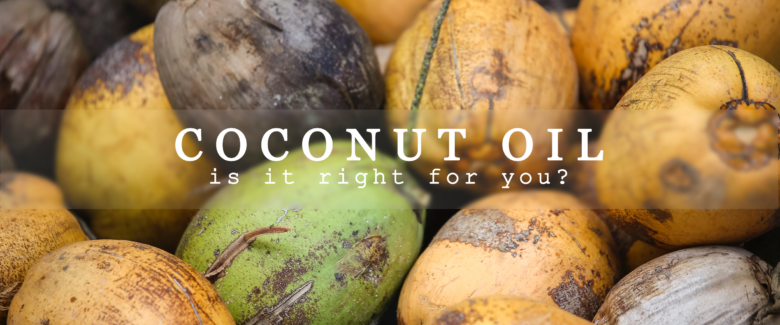Can coconut oil be good for your health? What if you have high cholesterol? Should you eat fats? These are the questions that are being asked, thanks to our realization that for 30 years the low fat, high carb diets we have been on have contributed to heart disease and diabetes. But is a high fat, low carb diet right for you? The answer is…that depends.
It depends on how your particular body metabolizes fats. The only way to find that out is with some really good lab tests. The Boston Heart Lab test I spoke of last week is one of the ways we find out how well you metabolize fat. Many people benefit from coconut oil as it increases their protective HDLs and decreases inflammation, but not everyone. You, do you! Or rather, you need to know you and how you metabolize fats.
It also depends on what kind of fats you are eating. Avocados, olives, nuts, seeds, olive oil, fatty fish (wild caught salmon, herring, and sardines), butter and coconut oil are healthy fats. Margarine, trans fats and vegetable oils are not, in fact, they increase inflammation in the body. Eating coconut oil while continuing to eat at restaurants that use inflammatory vegetable oils and continuing to eat foods that use highly inflammatory trans fats or hydrogenated oils will only increase your risk of heart disease, stroke, and illness. Coconut oil can increase metabolism to help you lose weight, support brain health and increase protective HDLs. It is cholesterol that is needed to create stress hormones and sex hormones in the body.
Sugar and refined carbohydrates are the real bad guys. They can cause damage to the lining of the blood vessels. It is cholesterol that comes to the rescue to repair the damage, which is why it is the cholesterol, not the sugar that gets blamed for the plaque build-up.
Bottom line: Know how your body metabolizes fat and use your diet to support your health. Eat healthy fats, a moderate amount of grass-fed or wild-caught protein and get your carbs mostly from vegetables and berries. Be heart healthy.


